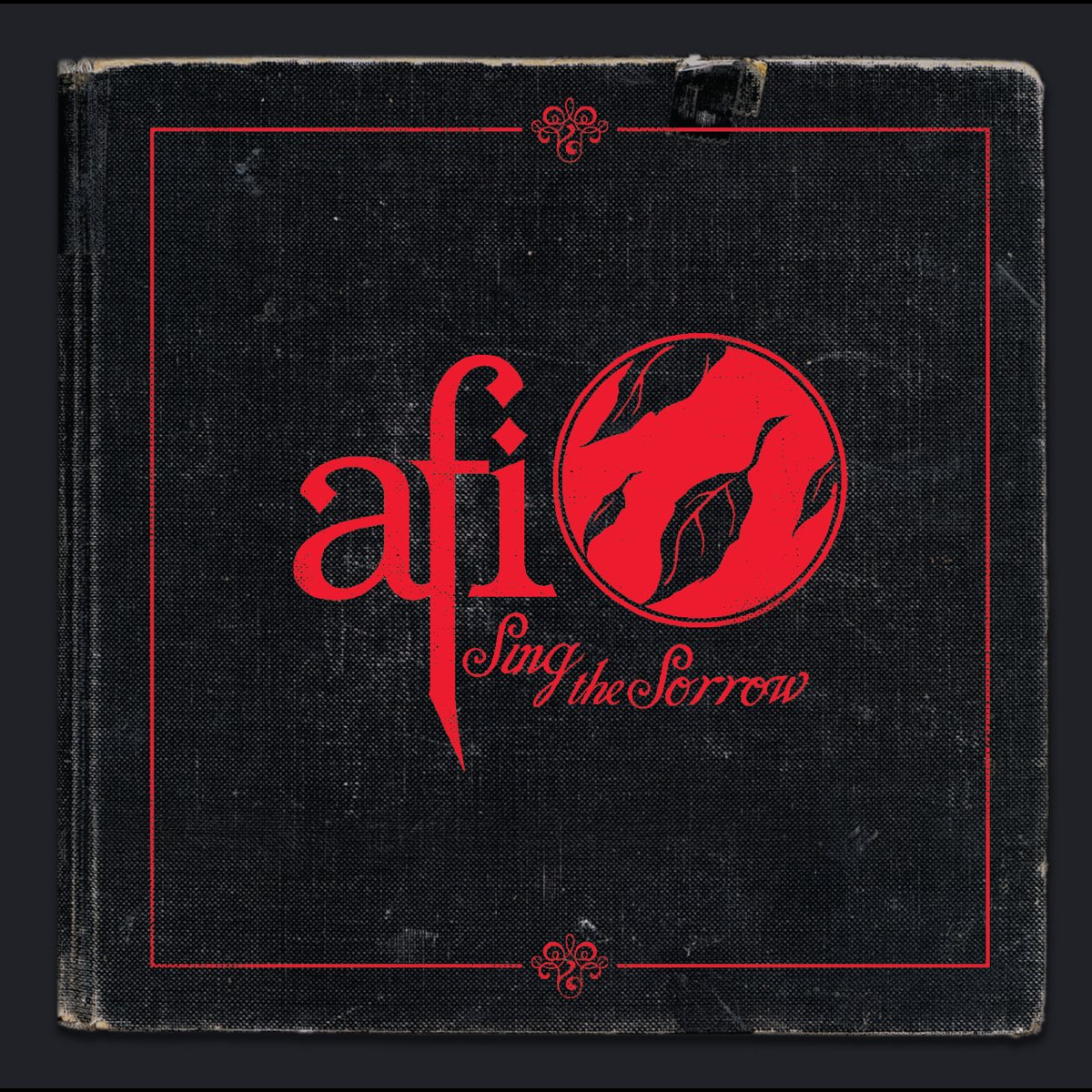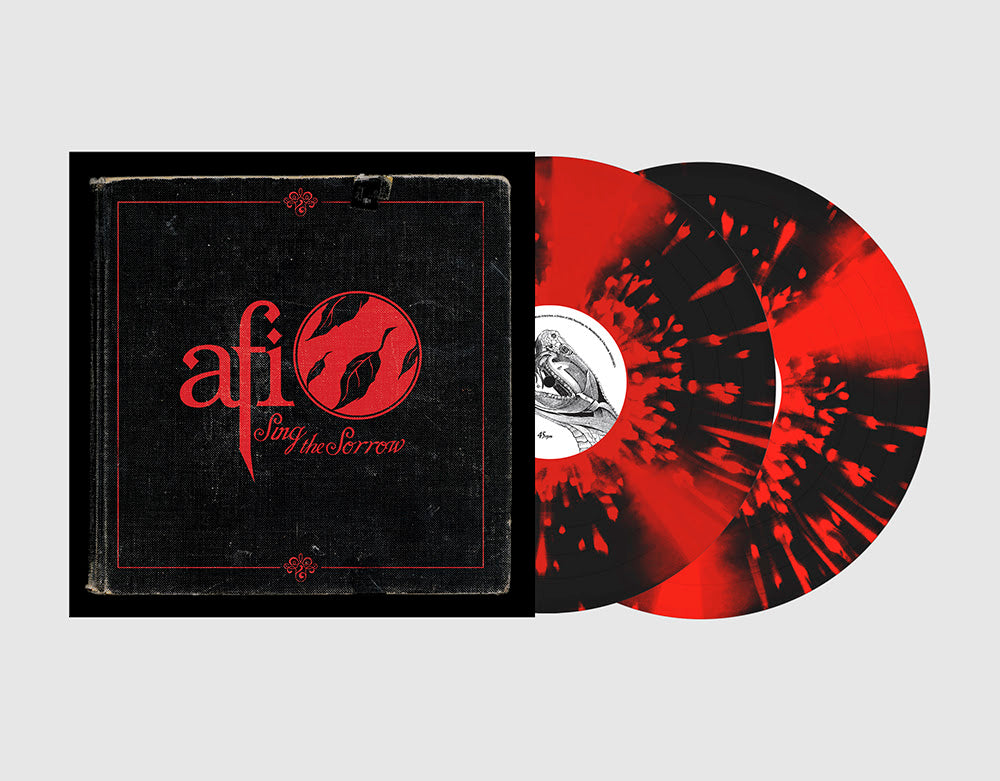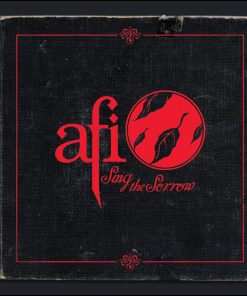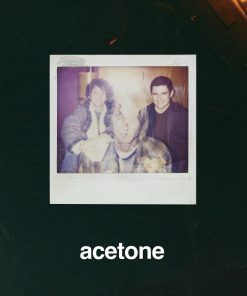AFI – Sing the Sorrow 2LP Geffen Records
$ 44,98 Original price was: $ 44,98.$ 26,99Current price is: $ 26,99.
**Limited Edition Red / Black Pinwheel Vinyl!
Sing the Sorrow, their DreamWorks debut, isn’t the wholesale departure from AFI’s roots that some longtime fans griped about. It is merely the next step on a path that began with 1999’s Black Sails in Sunset, the first album to feature guitarist Jade Puget. Assuming the role of principal songwriter, Puget wrapped vocalist Davey Havok‘s gothic tendencies in songs that put a finer point on the aggressive hardcore of AFI’s earlier material, and massaged hooks from a morass of crashing rhythm, punk rock riffs, and Havok‘s opaque lyrics. The backing of DreamWorks meant that AFI could now hire major-league production to tweak what Puget had started. And they did. Work on AFI’s major-label bow began in August of 2002 at L.A.’s Cello Studios, with Butch Vig (Nirvana, Smashing Pumpkins) and Jerry Finn (Green Day, Rancid) at the helm. Emerging in early 2003 with Sing the Sorrow, it’s clear the molting process AFI began with Black Sails in Sunset is complete. Vig and Finn kept the band’s nucleus of pummeling California hardcore but stretched the songs lengthwise to incorporate greater lyrical introspection for Havok and even more attention to melody than on previous efforts. Oscillating between churning verses and intersecting solos and riffs, “The Great Disappointment” is like junior-varsity Fugazi, while the heroic emo chord changes of “This Celluloid Dream” transform Havok‘s preening wail into a sensitive croon, and single “Girls Not Grey” is a car-radio singalong of pure genius. It’s true that the anthemic backing vocal choruses of material like “Girls Not Grey” and “Bleed Black” make the songs more pop than hardcore or even Havok‘s beloved goth. And the distorted synth and drum programming on “Silver and Cold” and “Death of Seasons” is a cheeky production trick that isn’t very successful when married to the songs’ upbeat choruses. But neither the producers nor the band went overboard. Just when the strings, piano, and rainstorm effects threaten to turn Sing the Sorrow into a My Dying Bride album, there is a burst of hardcore like “Dancing Through Sunday” to recall California pioneers of the genre like Dead Kennedys or SST transplants Hüsker Dü. Whatever factions of the band’s longterm fans might think of their major-label affiliation, Sing the Sorrow represents a coalescing of the band’s sound. And that’s fine with AFI. “People have always either hated us or loved us,” guitarist Puget told MTV, “And the reactions tend to be pretty extreme on both sides, but the hatred is just as cool because people are actually reacting. It’s either, ‘F*ck those guys,’ or ‘I f*ckin’ love AFI. They rock.'” -All Music Guide
Fast Shipping and Professional Packing
We offer a broad range of shipping options due to our long-running partnerships with UPS, FedEx and DHL. Our warehouse employees will pack all goods to our exacting requirements. Your items are carefully inspected and secured properly prior to shipping. We ship to thousands of customers every day from all over the world. This demonstrates our dedication to becoming the largest online retailer in the world. Warehouses and distribution centres can be located in Europe as well as the USA.
Note: Orders that contain more than one item will be assigned a processing date depending on the item.
We will carefully examine all items before sending. Today, the majority of orders will be shipped within 48 hours. The expected delivery time will be between 3 and 7 days.
Returns
Stock is dynamic. It's not completely managed by us, since we have multiple entities, including the factory and the storage. The actual inventory can fluctuate at any time. It is possible that the stocks could be depleted after your order has been processed.
Our policy lasts 30 days. If you haven't received the product within 30 days, we're not able to issue a refund or an exchange.
To be eligible for a refund the product must be unopened and in the same state as when you received it. The item must be returned in its original packaging.
Related products
Uncategorized
Uncategorized
Uncategorized
Uncategorized
Uncategorized
Uncategorized
Uncategorized
Uncategorized
Uncategorized
Uncategorized
Uncategorized
Uncategorized
Uncategorized
Uncategorized
Uncategorized
Uncategorized
Uncategorized
Uncategorized
Uncategorized
Uncategorized
Uncategorized







































